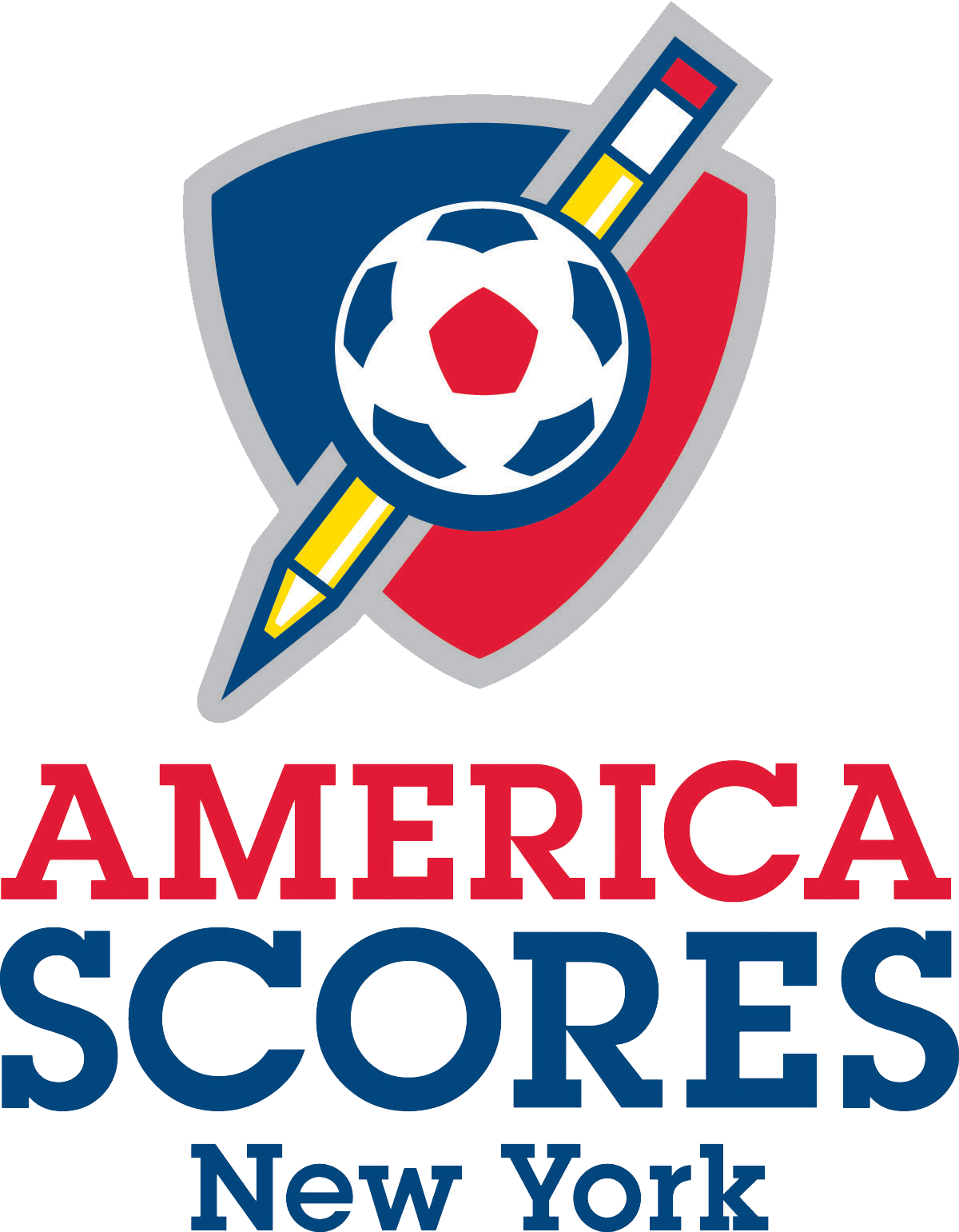Introducing SCORES 3.0
This Fall season, SCORES 3.0 is being introduced to our poet-athletes across New York City. This initiative will increase our commitment to fair play across our soccer program and will allow the kids who take part in our program to develop the skills necessary to lead successful lives off the field and outside the classroom.
Veronica Collazo spoke to Program Director Zach Gomes and Soccer Program Manager Chloe Wheeler about SCORES 3.0, what inspired it and what they hope the impact will be for America SCORES New York.
America SCORES New York Program Director Zach Gomes talking SCORES 3.0 to kids from PS 4, PS 192 and PS 386 on the first day of the Fall season in Harlem. Picture by John Riordan
When did you first develop the idea for SCORES 3.0?
ZG: In Fall 2017, I entered the Youth Studies MA program at CUNY School of Professional Studies. Prior to beginning my studies there I had no question in my mind that sport could be deployed as an effective vehicle for positive social emotional learning (SEL) within the world of youth development. CUNY pushed me to explore the idea that prosocial youth development in itself is not enough and that any youth serving organization must be informed by social justice youth development (SJYD).
SJYD suggests that in order to help any young person fully develop, they must be aware of the socio-political realities that exist around them and be challenged to reinvent these realities. I think our program was already doing this in many ways; yet an increased intentionality behind how our program activities help young people relate to the world around them became a focus of the America SCORES program team.
As ASNY began to dive deeper into developing programming that intentionally used concepts of SJYD, I was given the opportunity to work with Street Football World (SFW) at the 2018 FIFA Foundation Festival in Russia. SFW uses a method called Football3 to engage young people in discussion that focuses on social issues that matter to them. Football3’s emphasis on using soccer as a tool to advance ideas surrounding fair play, respect and teamwork was amazing and something I saw could really help our program in NYC.
The match consists of three parts; a pre match discussion in which young people collectively create the rules by which they will play (the rules have a focus on the concepts mentioned above, fair play, respect and teamwork). The second part is the game. And in the third part the teams come back together and reward their opponents fair play points based on a reflection of how the game was played and by whether or not the other team followed the rules they made collectively.
The festival was amazing. The Football3 method facilitated discussion and youth leadership in a sporting space like I had never seen it done before; it was a living example of how a sports league can be intentionally set up to practice SJYD. SCORES 3.0 is our attempt to bring some of the Football3 methods back to NYC.
There are realities that exist within in our program concerning time, space and culture that had to be taken into account when creating SCORES 3.0, but it is modeled in the image of what I experienced in Russia.
How will you implement this new method of coaching?
CW: This fall, we are updating the structure of our game days to reflect this new method of coaching. Each week will have a theme tied to social justice, such as equality, and at game day, teams will earn “fair play” points for exemplifying the theme, which will be displayed on a board at each field. For elementary schools, each team can earn up to three points based on concrete ways to earn them (ex: equal play time, passing ball equally among your team, and shaking hands after the game). The first half, the second half, and post game will all count towards these points.
For middle school game days, we will be rolling out a structure that reflects more of a full Football3 methodology. Instead of SCORES implementing a fair play rule, teams will decide on a fair play rule for the game based on the theme of the week
Additionally, as opposed to the coaches rewarding the teamwork, leadership, and commitment (TLC) cards, the players will be responsible for awarding them to the opposing team, giving them a voice and ownership as well as connecting them to the opponent in a positive manner.
We are guiding & supporting coaches to use this framework as a structure in their practices throughout the first few weeks of program to familiarize their students and themselves with it.
What kind of impact do you anticipate it having?
ZG: We are optimistic that this will give players more of a structured way and a platform to think outside of themselves and their own team, shifting their awareness to the TLC core values and how others demonstrate them, rather than focusing on competition & the score of the game.
CW: We want young people to leave our program and know that they are part of something bigger. We want to intentionally link the experience of being on a team to the idea of being civically engaged and to create an understanding that you have a voice and can make a difference in the way things are structured in the world.






